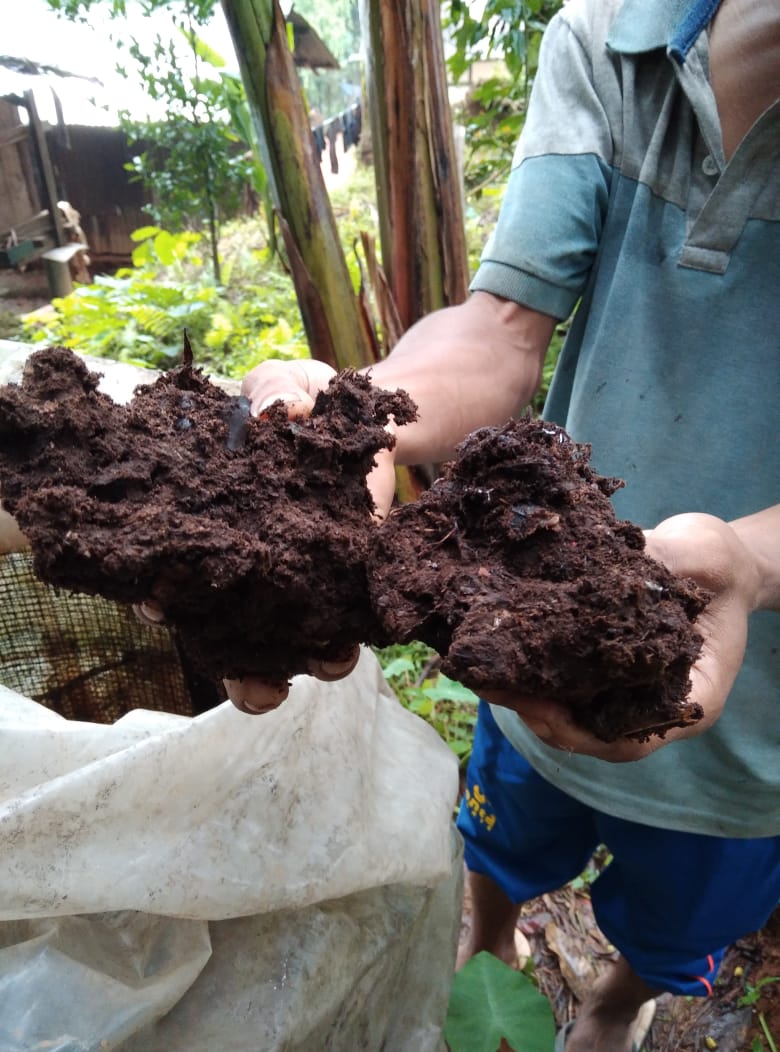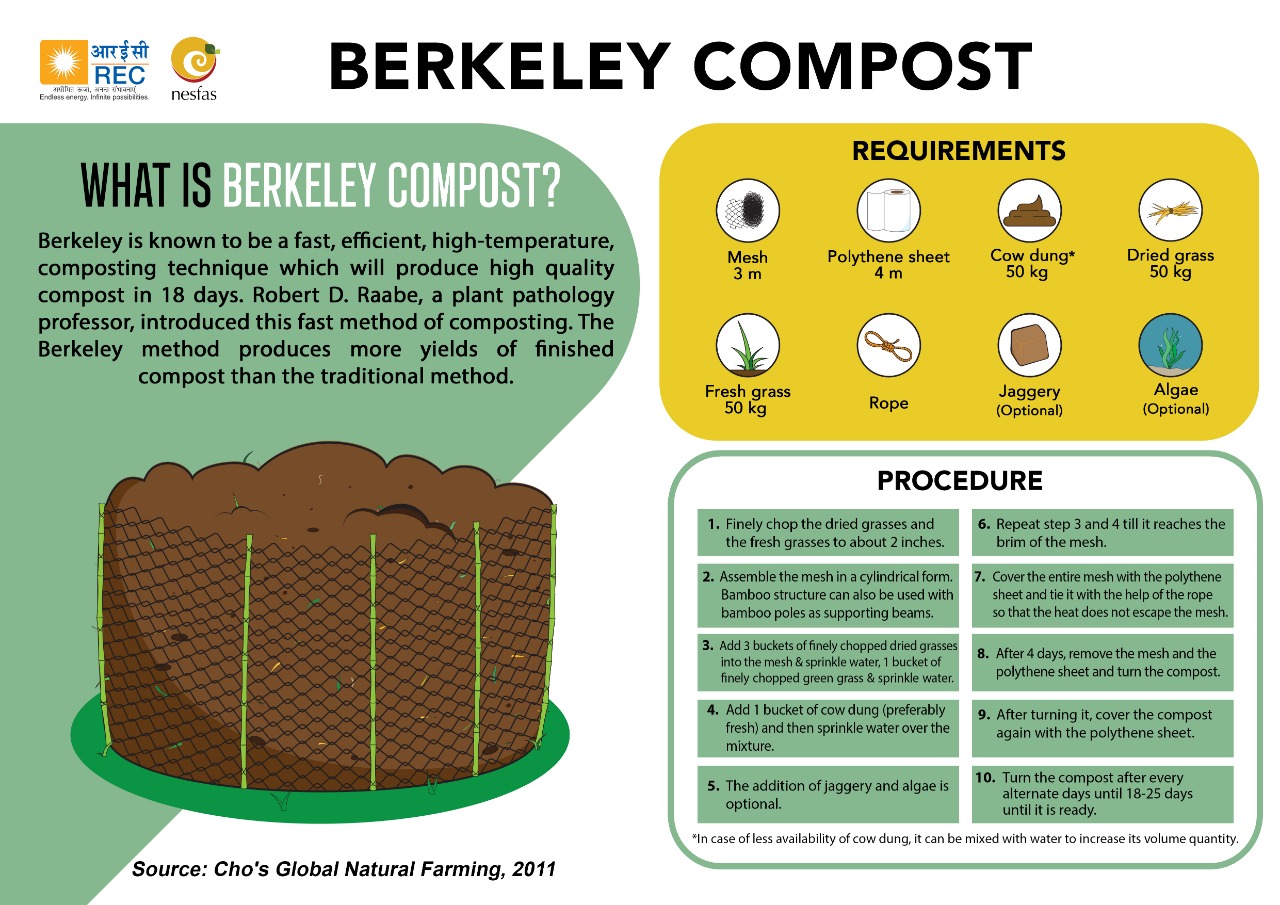Earlier this year, the NESFAS team had organized a Berkeley composting training, under the Rural Electrification Corporation Foundation (REC)-funded project ‘No One Shall Be Left Behind Initiative’ in Durakantragre, West Garo Hills. NESFAS research assistant Wayoolang Talang and field coordinator Lamphrang Shabong conducted the training where they taught the farmers and community farmers on the importance of using natural remedies instead of chemical fertilizers. They also demonstrated as to how farmers could make Berkeley Compost in their own backyards.
After the training, Alfred A Sangma (27), a beekeeper and farmer, and one of the participants from the same community took the opportunity to use the information that he had gathered from the training and turn it into a side business for himself.
He started making Berkeley compost in his free time and is currently selling around 50kg of compost in a week to several farmers from the urban areas of Garo Hills, particularly in Tura. The Rongram Block Office (West Garo Hills) has also started procuring compost from Sangma ever since they learned of his new venture.
“Before the training conducted by NESFAS, I was not aware of any natural remedies to make composts. Now I know as to how important it is to use the abundant natural resources found in my area and make use of it in a good way,” he said. “Not only that, but it is also very important to stick to eco friendly products and nothing can beat home-remedies,” he added.
Sangma mentioned that since biomass and other raw products are not found in abundance in the area, people are more drawn towards buying his compost. “These days, people are very conscious about protecting the environment and they are so concerned about going chemical-free and organic,” he said.
Another reason he came up with the initiative was to help mobilize youths from Durakantragre. The youths could earn some money by helping him make the compost. Community members who have kitchen gardens at their homes can also have better produce and at the same time, increase production and sell the produce to other community members or even to the nearby communities.
“Who would’ve known that waste could be so beneficial? Thanks to NESFAS, now I could earn some extra income by selling the Berkeley compost and help fend my family,” Sangma said.
 Translate
Translate






